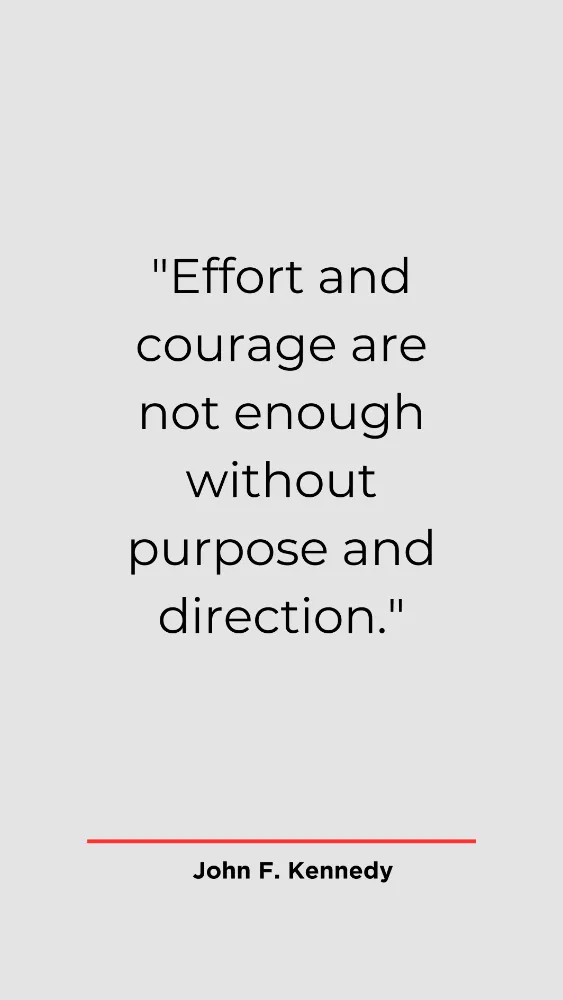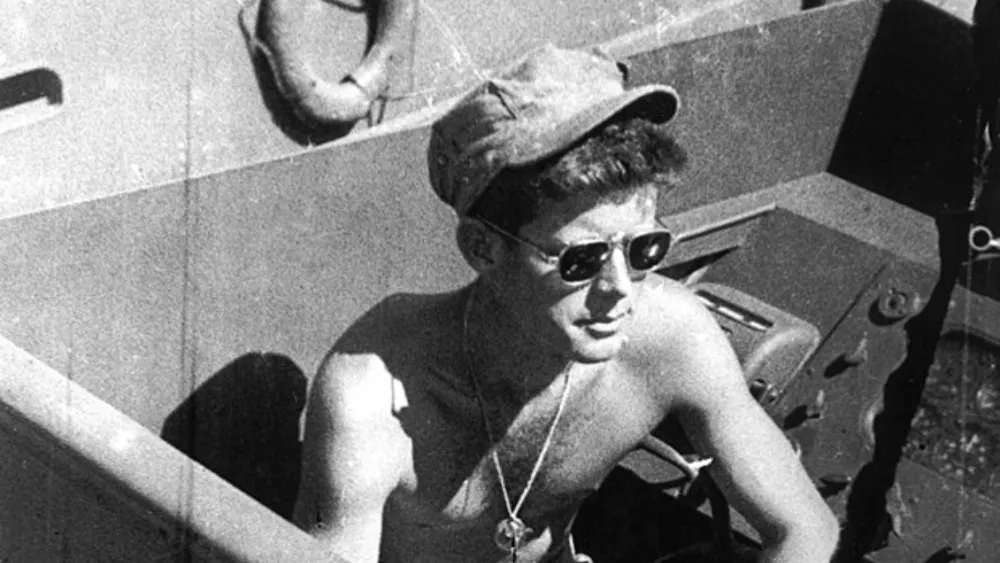John Fitzgerald Kennedy, often known simply as “Jack,” remains one of the most iconic figures in American history. His life story is one marked by resilience in the face of adversity, a deep commitment to public service, and a vision that inspired an entire generation. Despite suffering from numerous serious health challenges from infancy, Kennedy’s determination propelled him to the pinnacle of political power as the 35th President of the United States. His charismatic leadership style, eloquent oratory, and youthful vigor brought a sense of hope and modernity to the country during the turbulent years of the early 1960s.
Early Life and Health Struggles
John. Kennedy was born into a large, affluent, and politically connected family. He was the second of nine children born to Joseph Patrick Kennedy Sr. and Rose Fitzgerald Kennedy. From the beginning, Jack faced significant health challenges. He experienced a series of major illnesses during infancy and adolescence, including severe bouts of scarlet fever and other childhood diseases. These early health issues culminated in a diagnosis of Addison’s disease, a rare and serious endocrine disorder that would plague him throughout his life. Despite these setbacks, Kennedy was driven by an intense will to succeed and refused to let his physical ailments define him.
Growing up, Jack’s family life was both competitive and nurturing. The Kennedy household was a place of rigorous intellectual and physical challenge, where the siblings frequently engaged in intense games of touch football and other sports at their summer home in Hyannis Port, Cape Cod. These competitions not only built physical stamina but also forged a deep familial bond and a competitive spirit that would later serve Kennedy well in his political career. The Kennedy children were also steeped in the political and religious traditions of their parents. Joseph Kennedy Sr. was a staunch Democrat and an influential figure in business and politics, while Rose Kennedy instilled in her children a strong Roman Catholic faith and a commitment to public service.
The Upbringing and Family Legacy of John Kennedy
Joseph Patrick Kennedy Sr. was a titan of industry and politics. His wealth, accumulated through banking, shipbuilding, the movie industry, and savvy stock market investments, created a foundation that enabled his children to pursue ambitious careers. Beyond his business acumen, Joseph Kennedy was a shrewd political operator who served as the first chairman of the Securities and Exchange Commission (SEC) and later as the United States Ambassador to Great Britain. His position in the political and financial worlds gave the Kennedy family a significant platform and influence.
Rose Fitzgerald Kennedy, John’s mother, came from a lineage of political leadership. She was the daughter of John Francis “Honey Fitz” Fitzgerald, a beloved former mayor of Boston. Rose’s family connections complemented Joseph’s, intertwining the Kennedy name with the political fabric of Massachusetts and the broader United States. The Kennedys also ensured their children’s financial security by establishing trust funds that would provide lifelong support. This financial independence allowed John and his siblings to focus on public service and politics without the constraints that burdened many others.
Academic and Early Career Achievements
John F. Kennedy’s academic journey was distinguished yet fraught with health challenges. He attended elite preparatory schools such as Canterbury and Choate, where he excelled in his studies despite frequent absences due to illness. Later, he matriculated at Harvard University, where he demonstrated an early aptitude for writing and political thought. During his time at Harvard, Kennedy wrote his senior thesis on Britain’s lack of military preparedness prior to World War II. This thesis formed the basis of his first book, Why England Slept (1940), which garnered critical acclaim and became a bestseller. The work reflected Kennedy’s deep understanding of international affairs and foreshadowed his later focus on global issues as a politician and president.
Before graduating, Kennedy also spent time working for his father, serving as his secretary for six months in 1938. This experience offered a firsthand view of high-level business and diplomacy, particularly as Joseph Kennedy was transitioning from his role at the SEC to his ambassadorship in London. John’s travels in Europe during this period exposed him to the rising tensions that would soon culminate in World War II.
Military Service and Political Beginnings
When the United States entered World War II, Kennedy enlisted in the Navy. He served with distinction in the Pacific Theater, commanding a patrol torpedo boat (PT-109). His leadership during a harrowing incident in which his boat was sunk by a Japanese destroyer earned him recognition and commendations. Despite his ongoing health issues, Kennedy’s courage and determination shone through. This military service further bolstered his public image and helped establish him as a war hero.
After the war, Kennedy briefly worked as a journalist before embarking on a political career. In 1946, he ran for and won a seat in the U.S. House of Representatives, representing Massachusetts’s 11th Congressional District. His campaign benefited from his family’s financial resources and political connections, but also from his own charisma and appeal to working-class voters. His relative youth and fresh perspective helped him stand out in Washington’s political scene.
Kennedy won re-election to the House in 1948 and 1950, building a reputation as a moderate Democrat during those years. In 1952, he successfully ran for the U.S. Senate, defeating incumbent Republican Henry Cabot Lodge Jr., a significant political upset. Around this time, Kennedy married Jacqueline Bouvier, a well-known journalist and socialite, marking the beginning of one of America’s most glamorous political partnerships.
Literary Accomplishments and Political Ascendancy
While recovering from a painful back operation in 1954, Kennedy authored another important book, Profiles in Courage. This collection of biographies of eight U.S. Senators who had taken principled stands despite political risk won the Pulitzer Prize for Biography in 1957. The book not only showcased Kennedy’s literary talents but also reinforced his image as a thoughtful, courageous leader. It remains a seminal work, reflecting Kennedy’s ideals about political integrity and leadership.
Kennedy’s Senate career positioned him well for higher office. His moderate stance and political skill helped him navigate the complex dynamics of Washington politics. By 1960, Kennedy had emerged as a leading contender for the presidency. He narrowly missed becoming the vice-presidential nominee in 1956, but he launched his presidential campaign with youthful energy and innovative use of the media.
The 1960 Presidential Campaign
John Kennedy announced his candidacy for president on January 2, 1960. During the Democratic primaries, he defeated Hubert Humphrey, a more liberal contender, to secure the nomination. For his running mate, he chose Texas Senator Lyndon B. Johnson, a move that balanced the ticket regionally and politically.
The general election pitted Kennedy against Republican candidate Richard Nixon, then vice president under Dwight D. Eisenhower. The 1960 campaign featured the first-ever televised presidential debates, introducing a new dimension to political campaigning. Kennedy’s telegenic appearance and calm demeanor contrasted sharply with Nixon’s less polished presence, giving Kennedy a critical advantage with the burgeoning television audience.
In November 1960, Kennedy won a narrow victory, becoming the youngest man ever elected president at age 43 and the first Roman Catholic to hold the office. His election represented a generational shift in American politics and signaled new hopes for progress on issues ranging from civil rights to Cold War diplomacy.
Presidency and Vision
John Kennedy infused his presidency with vigor and optimism. Many came to refer to his time in office as “Camelot,” inspired by the popular Broadway musical. His inaugural address influentially challenged Americans to “ask not what your country can do for you – ask what you can do for your country.” This call to action inspired a wave of public service and national unity. His administration focused on several ambitious goals. These included advancing the Space Race, promoting economic growth, supporting civil rights, and combating the spread of communism.
Despite his youthful image, Kennedy faced immense challenges, including the Cuban Missile Crisis, the Bay of Pigs invasion, and escalating tensions in Vietnam. His foreign policy was defined by a careful balance of firmness and diplomacy. Domestically, he laid the groundwork for civil rights advancements, though many of these efforts would only come to fruition after his death.

The Assassination of President Kennedy and the Ripple Effects
President Kennedy’s assassination in Dallas, Texas, on November 22, 1963, abruptly shattered the nation’s hopes. After delivering a series of speeches across Texas, John F. Kennedy rode through Dallas in a motorcade. During the drive, a gunman fired the fatal shots. The nation was left in shock and overwhelming grief. To this day, the assassination remains one of the most scrutinized and widely discussed events in American history.
Lee Harvey Oswald was arrested and charged with the assassination. Two days later, Oswald was himself killed on live television by Jack Ruby, a Dallas nightclub owner, deepening the mystery and conspiracy theories surrounding the event. The Warren Commission ultimately concluded that Oswald acted alone, though debate and speculation continue to this day.
Legacy
John Kennedy’s legacy endures not just through his policies or political achievements but through the inspiration he gave to generations of Americans. His vision of a “New Frontier” urged the nation to strive for progress and justice. His eloquence and courage during trying times left a lasting imprint on American culture and politics.
Kennedy’s life story is a testament to resilience, the power of vision, and the enduring impact of leadership in shaping a nation’s destiny.











